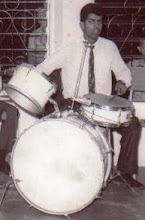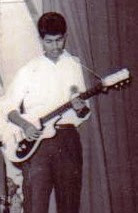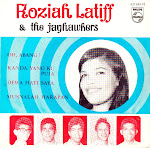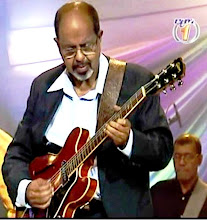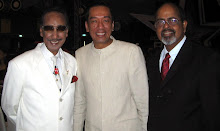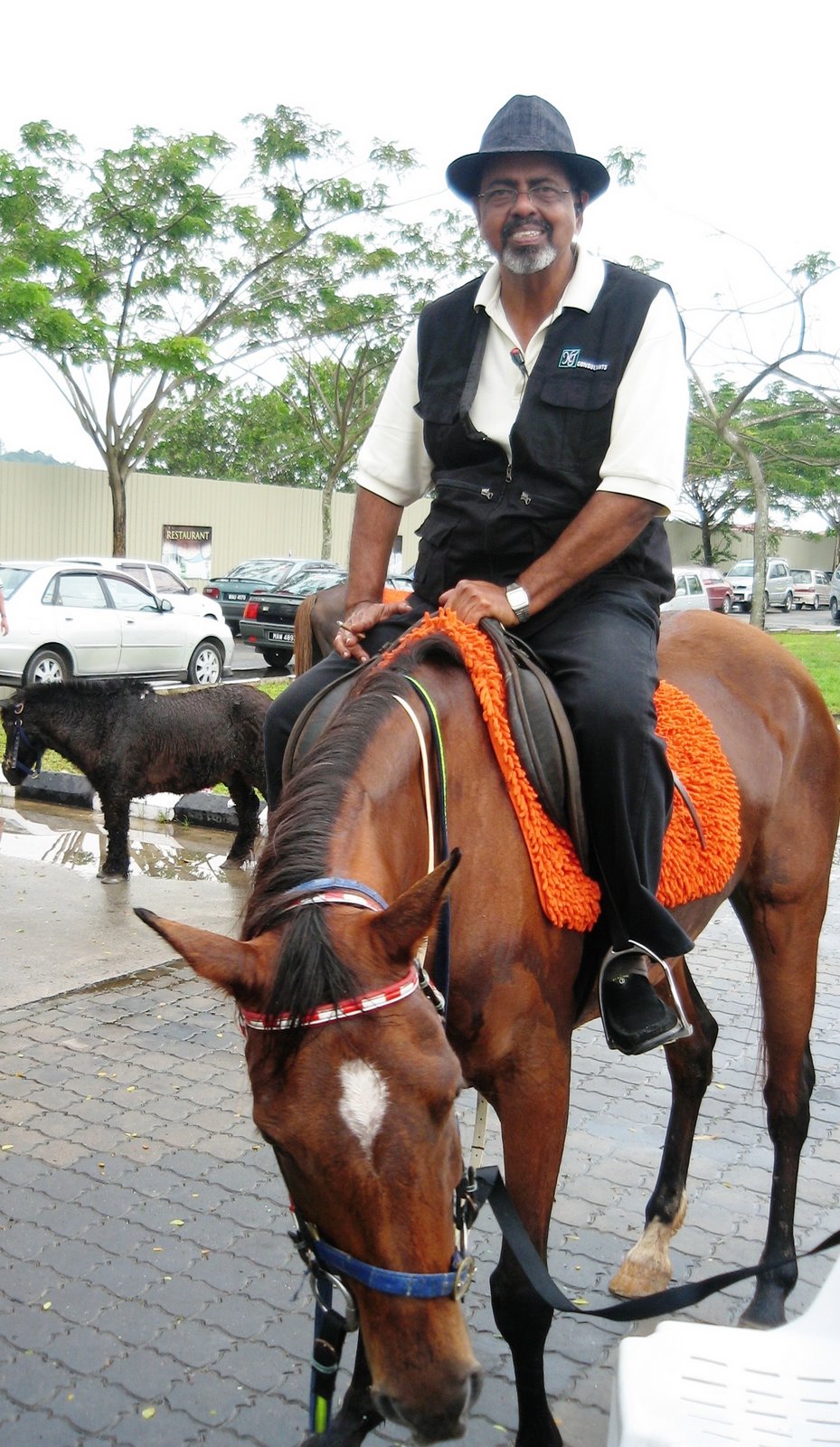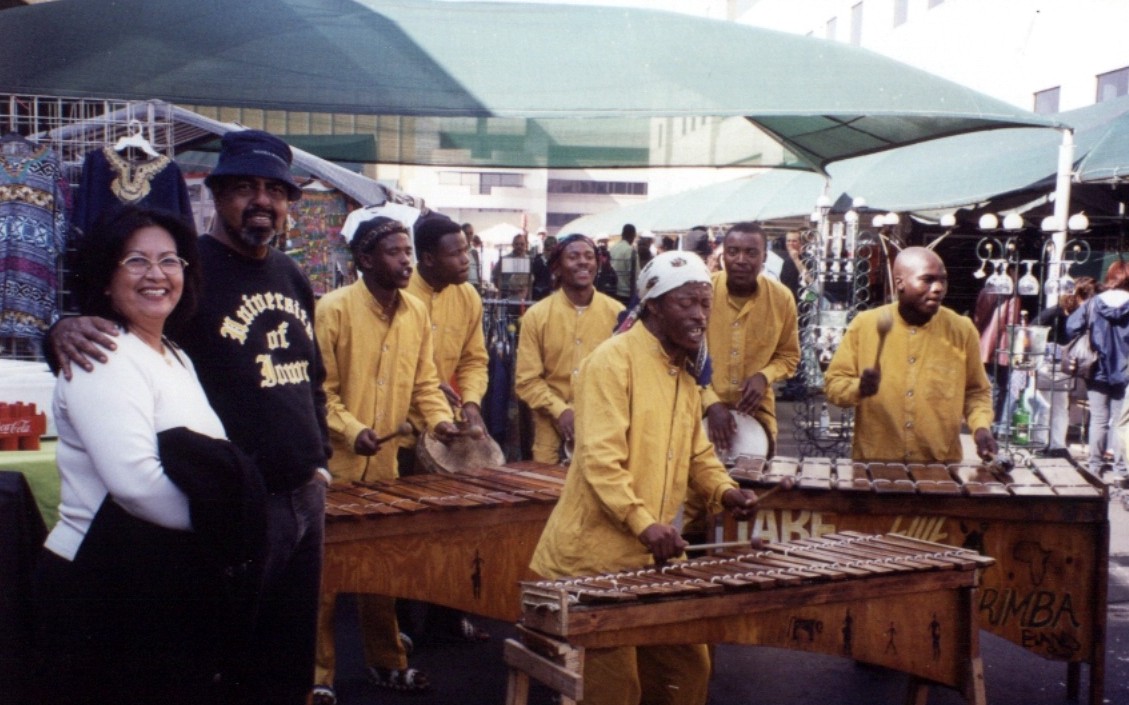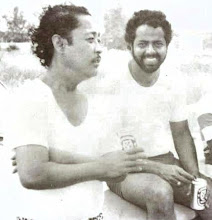


 These Pictures Tell You The Main Reason
These Pictures Tell You The Main ReasonIt has often been lamented by both local musicians' bodies as well as the authorities that more foreign entertainers, particularly Filipinos, are being hired in hotel outlets. This problem has caused many local musicians and singers to lose out on job opportunities. Musician organizations had been crusading for local talents ever since 19980’s with no end to the problem so far. The Musicians Union of Malaysia (MUM) was a forerunner to this type of call to protect our local musicians. The legendary Malaysian musician Alfonso Soliano himself thwarted the Malayan government’s effort to import Filipinos to man the Radio Malaysia band in the 1950’s itself. He then trained our locals to play in the orchestra. Dato’ Ahmad Nawab was one such person recruited by Alfonso.
Actually, the preference for Filipino musicians and singers is not something new. They are grounded in a Christian singing culture and also can speak English well. Malaysians do not have such backgrounds of a singing and English speaking culture. Our society has even looked down on singers and musicians and labeled them “anak wayang” from long ago. Moreover, most Malaysian parents may not feel comfortable if their daughters dress and perform like and on par with the Filipino entertainers. Like chickens to be slaughtered, musicians and singers were always sought out and made to feel important whenever there was a wedding or a village celebration from time immemorial. Like newly-weds they were also given royal treatment for the day.
The preference for Filipinos began to manifest itself more significantly in the early 1980’s itself and has been steadily on the rise ever since. But the singers and the music played was classy and the singers were songstresses who could really sing and entertain complete with monologues and all. Sleazy entertainment used to exist even then but only in shady clubs and pubs in red light areas. This style of entertainment has found its way and crept into hotel lounges since the 1980's. Though not as sleazy some of the traits are there.
As a result of increasing complaints and pressure from locals, the government introduced the “50% locals and 50% foreign entertainers” quota about 20 years ago and this has somewhat kept the “invasion” of foreign entertainers under a level of control. Today only 4- 5 star hotels and certain holiday resorts are allowed to engage foreign talents and that too depends on several other factors and conditions. However, people directly involved in this business had often found ways to by-pass regulations in a "catch me if you can" modus operandi.
There are many reasons for the continued presence of these foreign entertainers, particularly Filipinos. Today, most of them are not even musicians or singers per se but comprise more of those who can sing a little, dance and socialize with clients during their “breaks’. The best of Filipino entertainers find their way to Dubai, Hong Kong and Australia where they are paid much higher up to USD 2,000 each. Thus what we have in Malaysia is not the cream of Filipino talents.
In the days prior to the 1980's lounge entertainers in hotels and clubs were not allowed to socialize with guests during working hours. But today, socializing with guests has become an elemental requirement for all pub and lounge entertainers in order to be employed. It has little or nothing much to do with actual musical talent.
Just ask any F and B Manager in a hotel who is also directly in-charge of hiring and firing talents. He would respond that he has to follow what his clients want and points to the “supply and demand” axiom in any business. The wants and demands of clients can be interpreted as those who frequent the outlet and spend big money on alcoholic beverages. They would also be predominantly males who:
a) Prefer sexily clad females who are young, fair, slim and tall to entertain them.
b) Do not mind it if the "keyboard player" does not actually play the keyboard at all and only fakes it by using computerized midi files that do all the “music playing”.
c) Would like to have the girls sit with them during breaks and “entertain” them.
d) They should also be willing to come down and dance with the clients while performing
e) Do not mind “out of tune” singers as long as they are plain good looking females.
The entertainment outlets themselves also prefer Filipinos because most local musicians and singers:
a) Often demand more pay and perks than Filipinos especially if they are good.
b) Are seldom as flexible as Filipino talents in terms of the contractual requirements such as number of sets to play, accommodation and meals.
c) Prefer to work nearer to their homes or hometown and do not rush into a job opportunity say, in Pulau Langkawi or Cherating or Desaru as would any Filipino talent given half the chance.
d) Do not / can not "entertain" clients the way the Filipinos do. Learning new songs that clients request for is one such example.
e) Are mostly not represented professionally by music agents/managers whom a hotel can hold responsible for any non-compliance of contract etc.
f) Have an attitude problem and may just walk off the stage (and hotel) if reprimanded or rebuked by the management. The degree of possibility for this to happen also is directly proportionate to the talent’s ego.
This situation is not going to change much unless:
a) Our lounge clientele (and Malaysian music lovers in general) begins to appreciate good music rather than merely ogle at the performers.
b) Our own musicians and singers become more professional in both attitudes and performance capabilities.
c) The governmental authorities really understand or are willing to understand the problems at the “ground level”.
d) Malaysian parents, like Filipino parents, are willing to let their girls enter this profession without much ado or fuss.
e) Hotel operators make it a policy to have only classy entertainment befitting their star status with more traditional music (Malay, Indian & Chinese etc.), Jazz and Classical music.
Given the current level of the understanding and appreciation of music amongst Malaysians, we may have to wait a long time beyond 2020 for any of the above to happen. Proper music education programs at all levels of the education process with a clear emphasis on musical understanding and appreciation of music will definitely help.



